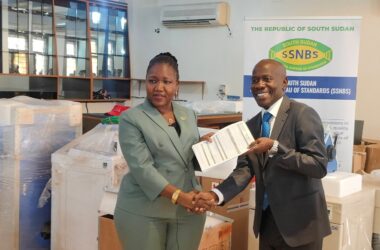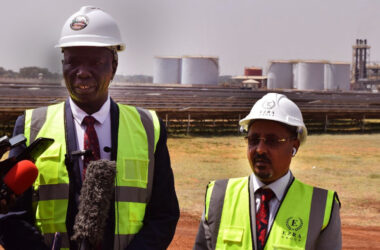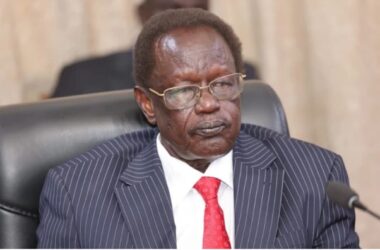By Yiep Joseph
Civil society organizations have expressed displeasure with the government’s decision to increase taxes included in the 2024/2025 fiscal year budget.
The Transitional National Legislative Assembly approved the budget on Monday, totaling 4.2 trillion South Sudan Pounds, with a 2.6 trillion deficit.
To bridge the deficit gap, the Ministry of Finance and Planning has incorporated a series of new taxes, including an increase in passport fees.
In the new fees, a regular passport will now cost USD 150, up from USD 100, while diplomatic passports will jump to USD 250.
Minister of Finance and Planning, Marial Dongrin, defended the tax hikes during the budget debate, arguing that they were necessary to sustain government operations.
“For states all over the world to function, the only source for now for any government is to tax the citizens. And therefore, we will have to tax for raising revenues,” the Marial said.
In response to the decision, civil society groups protested, citing an increment on the nationality card as abnormal and a violation of the rights of the Citizens.
In an interview, Ter Manyang, the Executive Director of the Center for Peace and Advocacy (CPA), expressed that the provision of a national identity card is an obligation of the government and there is no need to make it expensive.
“Having a passport is an obligation from the government around the world, not only in South Sudan. Why does our government make us suffer?” Ter questioned.
He added that making a national identity card expensive is like discouraging members from becoming citizens legally, adding that many may not be able to afford to acquire the document.
“I call upon the government of South Sudan to reconsider their decision about an increase of the passport fees and nationality,” he said.
He said that the increment of the identity card fees is another way of blocking those who cannot afford it, hence a violation of their constitutional rights.
“Denying citizens services are violation of their rights. Having a passport can take you anywhere in the world. If the government does not understand the implications of such a motive (increment of the passport fees), then citizens will lose trust and confidence in the government,” he said.
The activist added that he went to immigration headquarters in Juba and confirmed the suffering of South Sudanese in finding the passport, which he claimed was already very expensive.
In his part, the Executive Director for Community Empowerment for Progress Organization (CEPO) Edmund Yakani expressed that raising taxes with abnormal increments on vital documents remains a challenge to the poor.
He added that an increment in taxes may affect all sectors, including the humanitarian sector, aside from blocking citizens from getting certain services.
“CEPO is alerted by the rates of taxes per the passed national budget for financial years 2024/2025. Some rates of taxes are increased abnormally in comparison to previous rates,” Yakani said.
“Some of the tax rates levied on non-governmental organizations, both national and international and UN agencies, are a total increase of burden on the organizations. Besides the responsibility for providing complementary services to the vulnerable citizens through the humanitarian responses,” he added.
He added that passports and national identity cards could be charged at the lowest fees since they are legal rights for the citizens.
“The increase of the passport fee from 150$ to 250$. Passports and personal identity cards are essential documents for the movement of citizens. It could have been the low-rate fee item since it is essential for the citizens,” he said.
“The low-income citizens may not afford to pay this new fee for passports, including students from families of low income,” he said.
In a separate protest, some members of the Transitional National Legislative Assembly (TNLA) during the budget debate vetoed the proposed increase in fees for obtaining nationality identity cards and passports, arguing that citizens cannot afford it due to the prevailing harsh economic conditions.
Last year the national parliament passed the 2.2 trillion South Sudanese pounds fiscal year 2023/2024 with an increment of civil servants and organized forces to 400%; however, till now the country has gone on for almost a year without paying the workforce.
It is not clear how the generated resources are utilized while income-generating institutions like the Revenue Authority report huge amounts of money to the Ministry of Finance and Planning.
However, it is believed that the huge government structure that comprised of a president, five presidents, 35 cabinet members, and 650 members of parliament continues to consume a huge part of the budget hence giving no chance to service delivery.



